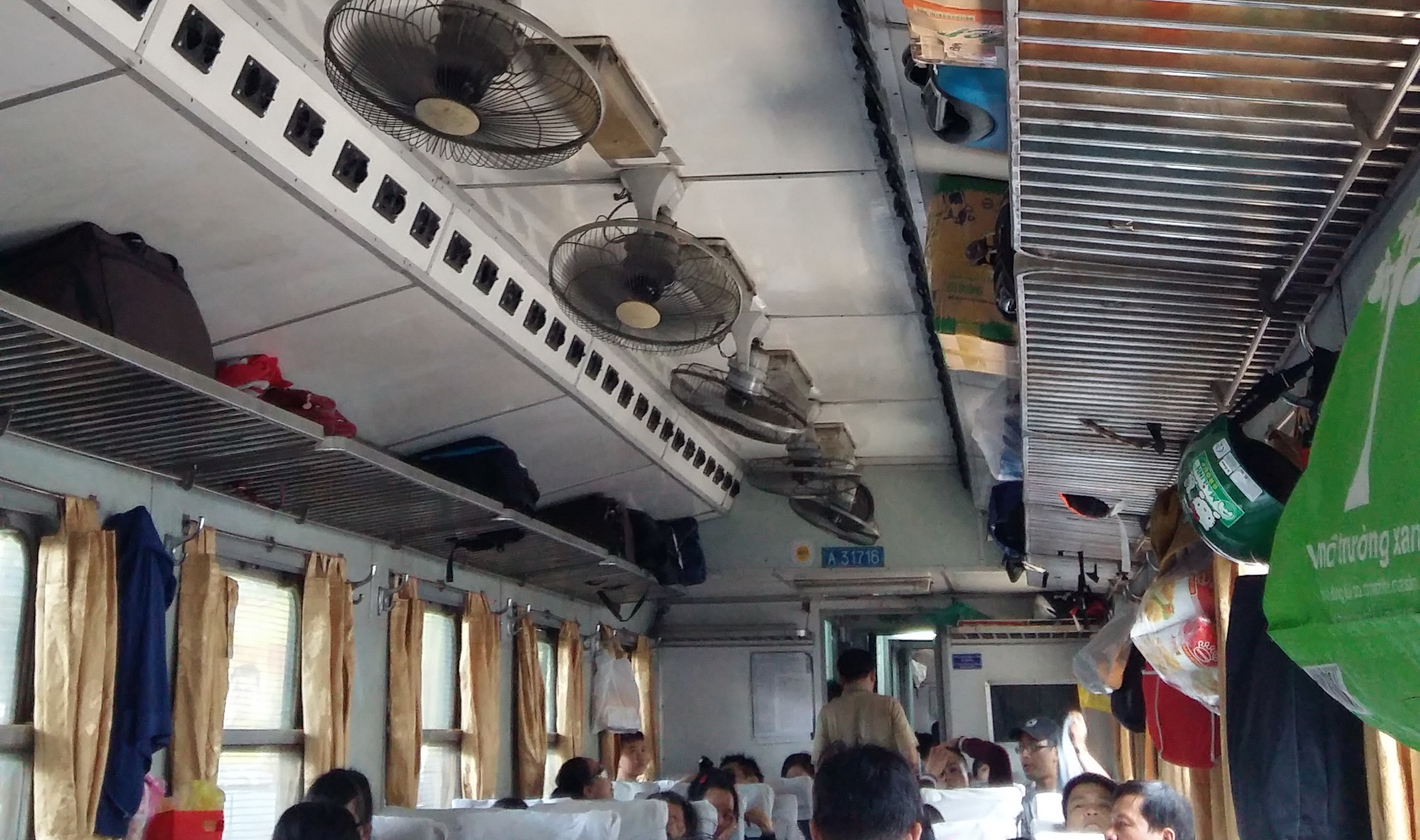The operator of Vietnam’s railway system has shown that it listens to passengers and has indeed made some changes to improve quality, but train travelers are still unsatisfied.
In emails sent to Tuoi Tre (Youth) newspaper, many readers have complained about the dearth of trash cans, unhygienic restrooms and the lack of announcements in English on trains operated by the state-run Vietnam Railways.
Nguyen Van My, director of a local tour organizer, acknowledged that the railway operator has exerted effort to better serve passengers, but there are still issues that have remained unsolved for years, even though it does not require much money for improvement.
“While there are trash cans on the air-conditioned railcars, passengers do not know where to dump garbage if they travel on those with no air-conditioning,” My wrote.
“The consequence is people just throw the trash out of the windows, which explains the piles of rubbish along the railway tracks.”
My also said while there are safety notices on the trains, there are no signs asking passengers to keep their railcars clean and hygienic.
“Installing more trash cans and such hygiene signs can be done immediately without needing much money,” he said.
Traveling by train can take passengers dozens of hours to go from one destination to another, so hygiene and cleanliness are always top priorities.
But two Tuoi Tre readers, Ngan and Pham The Tung, both said the train toilets are “awful” and “unacceptable.”
Vietnamese trains are not known for having clean and hygienic restrooms. In the past, there were toilets where everything passengers discharged from their bodies would fall straight onto the railways beneath.
The food delivered on trains also has a bad reputation.
“I’m willing to pay more to be served a more delicious meal,” Quoc Bao, a Ho Chi Minh City resident, said.
“Who would want to eat a bowl of instant noodles that is full of water and contains only some small slices of meat?”
Another reader is concerned about the lack of announcements in foreign languages, as trains are also a favorable means of transportation for international tourists in Vietnam.
“With all information announced in Vietnamese, how could foreign tourists who travel on their own know what to do when there are changes in schedules or other things?” he said.
“If possible, the announcements should also be available in English.”
Insiders’ explanation
Huynh Cuong, director of the cabin crew department with the Hanoi Railways, admitted that the train toilets can occasionally have problems due to “technical issues.”
“The toilet may smell bad even though it looks clean,” he said. “The problem is the toilet suppliers fail to carry out maintenance on time.”
Cuong rejected allegations that the cleaning staff members in charge of the train toilets “are lazy and refuse to work.”
“It is very rare for that to happen,” he said.
Dinh Van Sang, deputy general director of the Saigon Railways, said there could be some bad individuals among the train staffers.
“We will listen to any specific complaint and work to sort things out,” he said.
Hanoi Railways and Saigon Railways are both subsidiaries of the Vietnam Railways.
Sang also said announcements on train are normally issued in both Vietnamese and English.
“But unexpected announcements are not available in English,” he admitted.
He added that such unexpected announcements are usually meant for relevant passengers, not the whole trains.
“So if foreign passengers do not understand, the train staffers will help them and give specific guidance,” he said.
Sang said he had received complaints that the Vietnamese railway sector only focuses on serving domestic passengers while neglecting the international customers.
“People should not jump to such a conclusion only by judging the language of the announcements,” he said.
“All passengers are equally served on trains.”
Sang added the railway sector always tries to provide the best service for passengers.
“But under current conditions, there will be times when we fail to satisfy passengers,” he said.
The principal route operated by the Vietnam Railways is the 1,600km North-South service, which takes 32 hours to run between Hanoi and Ho Chi Minh City.
Like us on Facebook or follow us on Twitter to get the latest news about Vietnam!


















































